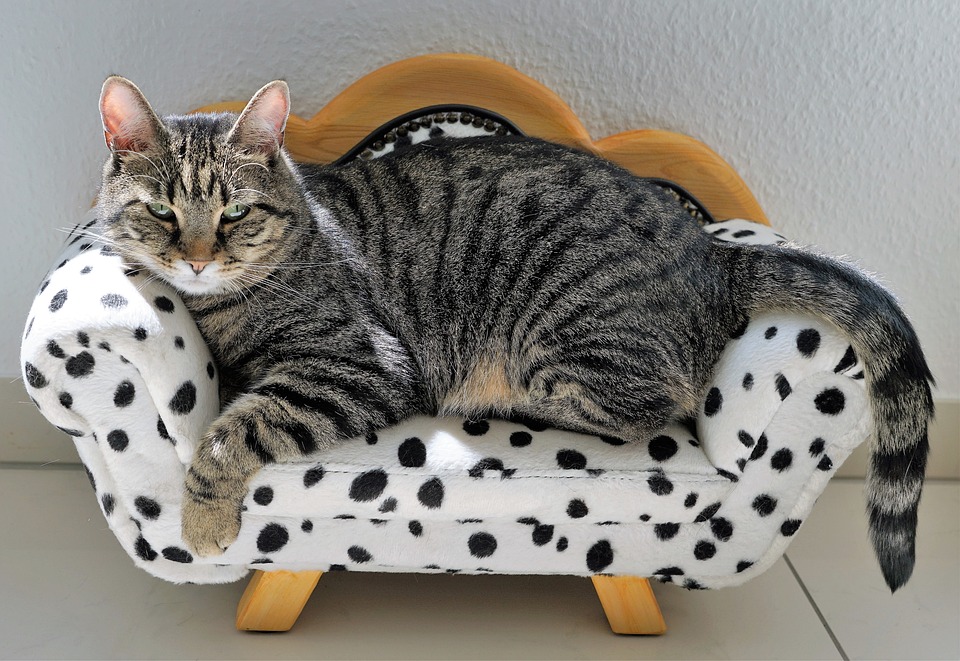The Importance of Cat Vaccinations: Protecting Your Feline Friend
Introduction:
As cat owners, we all want to ensure the health and well-being of our furry companions. One crucial aspect of cat care is vaccinations, which play a significant role in preventing diseases and safeguarding our cats’ overall health. In this article, we will explore the importance of cat vaccinations and why they are essential for your feline friend.
1. What Are Cat Vaccinations?
Cat vaccinations refer to the administration of specific vaccines to protect cats from various diseases. These vaccines contain weakened or killed viruses or bacteria that stimulate the cat’s immune system to produce an immune response. This response helps the cat develop immunity against the specific disease, preventing future infections.
There are different types of vaccines available for cats, including core vaccines and non-core vaccines. Core vaccines are considered essential for every cat, while non-core vaccines are optional but recommended based on the cat’s lifestyle and risk factors.
2. Why Vaccinate Your Cat?
Vaccinating your cat is crucial for several reasons. Firstly, vaccinations help prevent infectious diseases that can be potentially life-threatening for cats. Diseases such as feline distemper (panleukopenia), feline herpesvirus (rhinotracheitis), feline calicivirus, and rabies can be prevented through proper vaccination.
Secondly, vaccinations safeguard your cat’s health and ensure a disease-free life. By protecting your cat from these illnesses, you are also protecting other pets in your household, as some diseases can be transmitted between animals.
Moreover, certain feline diseases, such as feline leukemia virus (FeLV) and feline immunodeficiency virus (FIV), can also be transmitted to humans. Vaccinating your cat against these diseases reduces the risk of transmission and helps maintain a safe environment for both your cat and your family.
3. Common Cat Vaccinations:
Core vaccinations are considered essential for every cat. These include:
– Feline Distemper (Panleukopenia) Vaccine: Protects against a highly contagious and often fatal disease that affects the cat’s gastrointestinal tract, bone marrow, and immune system.
– Feline Herpesvirus (Rhinotracheitis) Vaccine: Prevents respiratory infections caused by the feline herpesvirus, which can cause severe symptoms such as sneezing, coughing, and eye and nasal discharge.
– Feline Calicivirus Vaccine: Protects against a highly contagious respiratory disease that causes symptoms such as fever, oral ulcers, and pneumonia.
– Rabies Vaccine: Essential for preventing rabies, a fatal viral disease that affects the nervous system of cats and can be transmitted to humans.
Non-core vaccinations, such as the Feline Leukemia Virus (FeLV) Vaccine and Feline Immunodeficiency Virus (FIV) Vaccine, are recommended based on the cat’s lifestyle and risk factors.
4. When Should Cats Be Vaccinated?
Kittens should follow a vaccination schedule recommended by their veterinarian. Typically, kittens receive their first set of vaccinations at around 6-8 weeks of age, with boosters given every 3-4 weeks until they are 16 weeks old.
Adult cats should receive regular booster shots to ensure long-term immunity against diseases. The frequency of booster shots depends on the specific vaccine and the cat’s lifestyle.
5. The Safety and Side Effects of Vaccinations:
Vaccine safety is a common concern among pet owners. However, vaccines have been extensively tested for safety and effectiveness before being approved for use. While some cats may experience mild side effects such as soreness at the injection site or mild fever, serious reactions are rare.
If you have any concerns about vaccine safety or potential side effects, it is always best to consult with your veterinarian. They can provide personalized advice based on your cat’s health and medical history.
6. FAQs: Answering Your Cat Vaccination Questions
To address common queries regarding cat vaccinations, here are some frequently asked questions:
1. How often do cats need to be vaccinated?
The frequency of vaccinations depends on the specific vaccine and the cat’s lifestyle. Your veterinarian will provide a vaccination schedule tailored to your cat’s needs.
2. Are there any risks associated with vaccinations?
While vaccines can have mild side effects, serious reactions are rare. The benefits of vaccination far outweigh the minimal risks.
3. Can cats have adverse reactions to vaccines?
Adverse reactions are rare but possible. If you notice any concerning symptoms or behavior changes after vaccination, contact your veterinarian immediately.
4. Are there any alternatives to traditional vaccines?
Currently, traditional vaccines are the most effective and widely accepted method of preventing diseases in cats.
5. What if my cat has an existing health condition?
If your cat has a pre-existing health condition, your veterinarian will consider their medical history and tailor the vaccination plan accordingly.
6. Are vaccinations required by law?
In many places, rabies vaccinations are required by law to protect public health. Check your local regulations for specific requirements.
7. Can indoor cats skip vaccinations?
Indoor cats are still at risk of certain diseases, so vaccinations are recommended to provide them with the necessary protection.
8. Can vaccinations be given at home?
Vaccinations should be administered by a licensed veterinarian to ensure proper handling and minimize the risk of complications.
9. Are there any age restrictions for vaccinations?
Most vaccines can be administered to kittens as early as 6-8 weeks of age. Consult your veterinarian for specific age recommendations.
10. Can vaccines cause autism in cats?
There is no scientific evidence to support a link between vaccines and autism in cats.
Conclusion:
Cat vaccinations are of utmost importance in providing a healthy and disease-free life for your feline friend. By vaccinating your cat, you are not only protecting them from potentially fatal diseases but also creating a safe environment for all pets and humans in your household. Consult with your veterinarian to develop a customized vaccination plan for your cat and ensure their long-term health and well-being.








